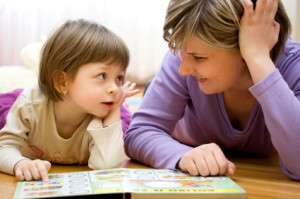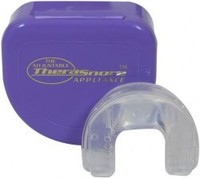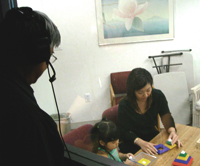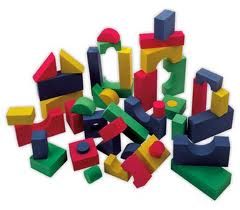What is Child Therapy?
Child Therapy, also known as Child Psychotherapy, is the creation of a beneficial and healing relationship which focuses in the improvement of the social and emotional well-being of the child. Child therapy is different from adult therapy in the following manner:
Focus of Treatment
The focus of treatment for child psychotherapy is to let them explore the possibilities of developing a strong self, emotional stability, good communication and good relationships. Children are still in the process of looking forward of becoming who they want to be in the future. Adult therapy focuses on the past experiences of the individual to find the source of trouble or problem.
Language
Unlike adult therapy that uses open communication, child psychotherapy uses child therapy toys, child centered play therapy, games, and other non-verbal activities to communicate with children. Children are not good with using words to express how they really think and feel so the therapists should be using both adult and children language.
Environment
Sometimes children lose track of self-awareness as they try to fit into the expectations of others and of themselves. They need to realign once more the experience of true awareness of self in a free environment where they are welcome to be their true selves without criticisms and expectation. This kind of environment fosters parent child interaction therapy and allows a growing trusting relationship with the therapist. This happens because the therapist has the ability to create space where the child can grow and explore his true self. The psychotherapist becomes the guide amidst the baffling territory of development and emotion.
Goals
There are five goals that child therapy is trying to achieve. These are the following:
- Promote Self-Esteem
- Enhance Communication
- Inspire Development
- Construct an Emotional Catalog
- Increase Emotional Vocabulary
Signs That Your Child Needs Therapy
It is difficult to pinpoint directly if your child needs therapy. The best way to know is to go through an evaluation to establish a basis for therapeutic intervention. An evaluation assessment usually lasts between one to three sessions for the therapist to draw out a conclusion whether your child needs therapy or what are things you can do to modify behavior if the child doesn’t need professional assistance.
There are few significant signs to watch out to consider your child needing therapy and seeking professional help for their children.
- Change in Behavior
As a parent, you know how your child behaves most of the time. You know your child’s pattern of activity and moods day in and out. When you notice a change in the behavior of your child, ask him/her first of what could be going on. When you think or feel that you are not getting the truth of the matter, then it might be a right approach to seek a consultant.
- Decline in Grades or Attendance in School
There are days when kids are refusing to go to school every now and then but it is a different case when their grades are greatly suffering and attendance in school is also becoming a mainstay problem. This could be an indication that there could be a problem in well-being and functioning. School performance is a concrete measure of well emotional stability. Teachers and guidance counselors are great help persons to counsel your child in school.
- Life Changes
A change in school, divorce, moving up to the next level, death of relatives or pet are all stressful situations that could prove detrimental to the emotional and psychological well-being of the child. Your child may be suffering sleeplessness due to sleep apnea that can be resolved with using sleep apnea mouth guard. If you notice your child might not be taking longer than their peers in coping with these life changes, then it could be a wise move to consult a therapy.
- You Child Asks for Therapy
It can be surprising to hear your child asking for therapy. But it is a common situation in the present time when children are getting more access to healthcare as they are seeing with their peers. Try not to judge your kids. It will mean no harm to get your child evaluated by professional counselors.
- Self-Inflicted Injuries
Most children don’t have the means to express what they truly feel so instead of verbal communication they resort to acting out the stress they feel emotionally. They may try to harm themselves, try to starve themselves or express intention to die. These behaviors can cause the parents enough anxiety to seek out for a second opinion.
When in doubt, seek your child doctor and ask for opinions regarding the change of behavior. It is usually best to get a professional evaluation of your child as soon as you are aware of these signs and behaviors. The earlier you can detect the problem, the earlier it could be resolved. Don’t wait until the problem has become severe and out of control before seeking out professional help.



